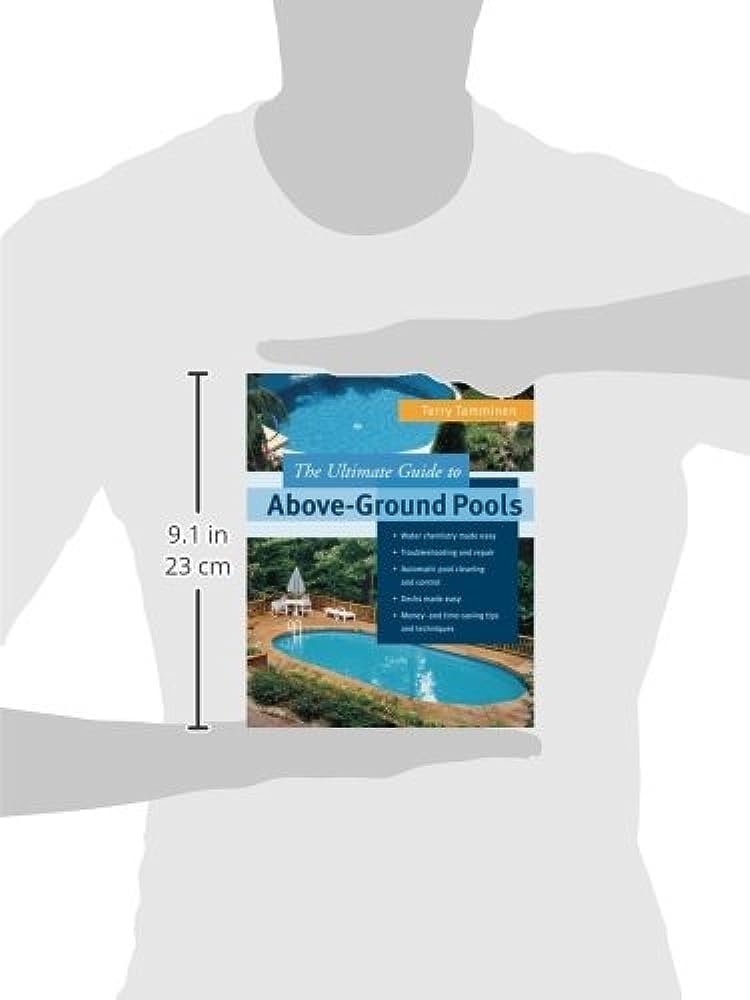Are you considering the installation of a saltwater pool but unsure about the cost? Look no further. In this article, we will delve into the intricate details of the expenses associated with constructing and maintaining a saltwater pool. From initial construction costs to converting an existing chlorine pool, we will explore the factors that influence the overall price. By the end, you will have a comprehensive understanding of the financial implications of owning a saltwater pool and be well-equipped to make an informed decision.
Key Takeaways
- The cost of constructing a saltwater pool can range from $20,000 to $180,000, with the national average being around $32,000.
- The size of the pool and the materials used are significant cost factors, with larger pools and concrete construction being more expensive.
- Converting a chlorine pool to a saltwater pool can cost between $600 and $2,500, depending on the pool size.
- Long-term maintenance costs for saltwater pools tend to be cheaper compared to traditional chlorine pools, as only salt needs to be added periodically.
Initial Construction Costs
The initial construction costs of a saltwater pool can vary significantly depending on factors such as size, shape, materials used, and additional features. For homeowners looking to build a saltwater pool from scratch, the cost can range anywhere from $20,000 to $180,000, with the national average being around $32,000. Smaller saltwater pools, typically less than 20,000 gallons, might cost between $10,000 and $20,000.
When it comes to pool size, larger pools will require a larger salt chlorine generator, which can increase the overall cost. As a rough estimate, a 10×16 saltwater pool can cost between $15,000 and $26,000, while a 20×40 pool can range from $65,000 to $105,000. Most standard backyard pools are 12 by 14, 14 by 28, or 16 by 32.
The construction material chosen for the pool also plays a significant role in cost. Concrete pools can range from $40,000 to $180,000, offering customization options but requiring more maintenance. Fiberglass pools are less expensive, with costs ranging from $10,000 to $40,000. They are corrosion-resistant and compatible with salt chlorine generators but offer fewer customization options. Vinyl pools, costing between $25,000 and $68,000, are more customizable than fiberglass but may be prone to corrosion and rips in the liner.
It’s important to consider additional costs and considerations when planning for a saltwater pool. This may include building a deck, patio, or installing a fence as required by city laws. Landscaping and similar construction costs can also add to the expenses. However, storage costs for chlorine and finding a dry place for it are not required for saltwater pools. It’s worth noting that the lifespan of a concrete pool with saltwater may be shorter compared to fiberglass or vinyl. Regular maintenance for saltwater pools will require manual equipment such as net skimmers and telescoping poles. Additionally, decking materials should be salt-resistant to avoid corrosion, and composite or naturally saltwater-resistant materials are recommended.
Converting a Chlorine Pool to Saltwater
Converting a chlorine pool to a saltwater pool involves a process that can be done by professionals or experienced pool owners. The conversion process typically includes installing a salt chlorine generator, adjusting the pool’s pH levels, and removing any residual chlorine. It is important to consider the cost comparison and potential long-term savings of converting to a saltwater pool, as it can lead to reduced maintenance costs and a more enjoyable swimming experience.
Conversion Process and Steps
When transitioning from a chlorine pool to a saltwater pool, homeowners should carefully follow a series of steps to ensure a successful conversion process. One of the main considerations for homeowners is the cost of saltwater pool conversion. The cost can vary depending on the size of the pool and the materials used. Converting a chlorine pool to a saltwater pool can cost between $600 to $2,500, depending on the size of the pool. In addition to the conversion cost, homeowners should also consider the long-term maintenance and equipment costs. While the initial installation and construction costs can be expensive, the maintenance costs for a saltwater pool tend to be cheaper compared to traditional chlorine pools. Overall, converting a chlorine pool to a saltwater pool can be a worthwhile investment for homeowners looking for a more cost-effective and low-maintenance pool option.
| Pool Size (Gallons) | Conversion Cost Range |
|---|---|
| 10,000 – 15,000 | $500 – $1,500 |
| 15,001 – 20,000 | $1,500 – $2,500 |
| 20,001 – 25,000 | $2,500 – $3,500 |
| 25,001 – 30,000 | $3,500 – $4,500 |
| 30,001 – 35,000 | $4,500 – $5,500 |
| 35,001 – 40,000 | $5,500 – $6,500 |
| 40,001 – 45,000 | $6,500 – $7,500 |
| 45,001 – 50,000 | $7,500 – $8,500 |
Cost Comparison and Savings
Installing a saltwater pool can result in significant cost savings compared to maintaining a traditional chlorine pool, as demonstrated by the lower long-term maintenance and equipment costs. The cost breakdown of a saltwater pool includes the initial construction and installation expenses, which can range from $20,000 to $180,000. Converting a chlorine pool to a saltwater pool can cost between $600 and $2,500, depending on the pool size. The total cost of a saltwater pool also depends on factors such as the pool size, shape, materials used, and additional features. For example, larger pools require a larger salt chlorine generator, which can increase the cost. Additionally, the construction material chosen, such as concrete, fiberglass, or vinyl, will affect the price. When it comes to long-term maintenance, saltwater pools only require periodic salt additions, whereas traditional chlorine pools require ongoing purchases of chlorine and balancing agents, costing $50 to $100 per month. Overall, investing in a saltwater pool can lead to significant cost savings in the long run.
Factors Affecting Pool Cost
The size, shape, and materials used in pool construction are significant factors that can greatly impact the cost of building a saltwater pool, with estimates ranging from $20,000 to $180,000. To better understand the cost breakdown of a saltwater pool, let’s examine the different factors involved.
Firstly, the size of the pool plays a crucial role in determining the total cost. Larger pools require a larger salt chlorine generator, which can be more expensive. Here is a rough estimate of the cost based on pool size:
| Pool Size | Cost Range |
|---|---|
| 10 x 16 | $15,000 – $26,000 |
| 10 x 30 | $24,000 – $42,000 |
| 12 x 24 | $27,000 – $50,000 |
| 14 x 28 | $36,000 – $57,000 |
| 16 x 32 | $47,000 – $72,000 |
| 20 x 40 | $65,000 – $105,000 |
Next, the construction material used also affects the cost. There are three common options:
- Concrete: This is the most expensive option, ranging from $40,000 to $180,000. While it offers customization, it requires more maintenance and may not last as long as fiberglass or vinyl.
- Fiberglass: This option is more affordable, with costs ranging from $10,000 to $40,000. It is corrosion-resistant and compatible with salt chlorine generators, but it offers fewer customization options.
- Vinyl: Vinyl pools cost between $25,000 and $68,000. They are customizable and cost-effective, but the metal frame may corrode with saltwater exposure, and the liner is prone to rips.
Lastly, the maintenance and equipment costs for a saltwater pool are generally cheaper in the long run compared to traditional chlorine pools. While traditional chlorine pools require monthly expenses for chlorine and balancing agents, saltwater pools only require periodic salt additions.
Size and Price Comparison
Based on the size and price comparison, homeowners can expect to spend anywhere from $15,000 to $105,000 for a saltwater pool, depending on the dimensions and materials used. The cost of a saltwater pool installation varies based on several factors, including pool size and construction material. Here is a breakdown of the cost factors to consider:
Cost Factors based on Pool Size:
- The size of the pool affects the total cost, as larger pools require a larger salt chlorine generator, which can be more expensive.
- Rough estimates for inground saltwater pools by size:
- 10 x 16: $15,000 – $26,000
- 10 x 30: $24,000 – $42,000
- 12 x 24: $27,000 – $50,000
- 14 x 28: $36,000 – $57,000
- 16 x 32: $47,000 – $72,000
- 20 x 40: $65,000 – $105,000
- Most standard backyard pools are 12 by 14, 14 by 28, or 16 by 32.
Cost Factors based on Construction Material:
- Concrete: $40,000 – $180,000
- Pros: Easy to customize
- Cons: Not as long-lasting as fiberglass or vinyl, more maintenance costs
- Fiberglass: $10,000 – $40,000
- Pros: Less expensive, corrosion-resistant, compatible with salt chlorine generators
- Cons: Fewer customization options
- Vinyl: $25,000 – $68,000
- Pros: More customizable than fiberglass, cost-effective
- Cons: Saltwater might corrode the metal frame, prone to rips in the liner
Considering these cost factors, homeowners can make informed decisions about the size and construction material of their saltwater pool. The next section will delve into the costs associated with different construction materials for saltwater pools.
Construction Material Costs
When considering the cost of constructing a saltwater pool, it is important to factor in the construction material costs. The choice between concrete, fiberglass, and vinyl can significantly impact the overall project expenses. Additionally, the longevity and maintenance requirements of each material should be taken into account.
Cost Comparison: Concrete Vs. Vinyl
In terms of construction material costs, the cost of vinyl for a saltwater pool ranges from $25,000 to $68,000, whereas concrete can cost anywhere between $40,000 to $180,000. When comparing the two materials for saltwater pools, it is essential to consider the pros and cons of each.
For vinyl pools, the advantages include customization options and cost-effectiveness. However, they are prone to corrosion of the metal frame and potential rips in the liner. On the other hand, concrete pools offer easy customization but require more maintenance and may not be as long-lasting as fiberglass or vinyl.
To break down the cost of a saltwater pool further, homeowners should also consider equipment and maintenance expenses. While initial installation costs can be high, long-term maintenance and equipment costs tend to be cheaper compared to traditional chlorine pools. Saltwater pools only require periodic salt additions, whereas chlorine pools need regular purchases of chlorine and balancing agents.
Overall, understanding the saltwater pool cost breakdown can help homeowners make informed decisions about material choices and budgeting for their pool construction project.
Longevity of Construction Materials
Concrete, fiberglass, and vinyl are the three main construction materials used for saltwater pools, and each material has different longevity and maintenance requirements. Concrete pools are the most expensive option, ranging from $40,000 to $180,000. While they offer customization options, they are not as long-lasting as fiberglass or vinyl and require more maintenance. Fiberglass pools are less expensive, with costs ranging from $10,000 to $40,000. They are corrosion-resistant and compatible with salt chlorine generators, but have fewer customization options. Vinyl pools fall in the middle, with costs ranging from $25,000 to $68,000. They are more customizable than fiberglass but prone to corrosion and rips in the liner. When considering the cost breakdown of a saltwater pool, it is important to factor in the initial construction costs as well as the long-term maintenance and equipment expenses. Transitioning to the subsequent section, the maintenance costs for a saltwater pool are generally cheaper as only salt needs to be periodically added compared to traditional chlorine pools.
Equipment and Maintenance Expenses
Long-term maintenance and equipment costs tend to be cheaper for saltwater pools compared to traditional chlorine pools, as only salt needs to be added periodically. This can result in significant savings for pool owners. Here is a breakdown of the cost factors associated with saltwater pool equipment:
| Item | Description | Cost Range |
|---|---|---|
| Salt Chlorine Generator | Main equipment to convert salt into chlorine for pool water sanitation. | $500 – $2,500 |
| – Cost varies based on size and brand. | ||
| – Higher-end models may include features like self-cleaning cells or advanced control systems, increasing the cost. | ||
| Salt | Primary chemical required for a saltwater pool. | $10 – $20 per bag |
| – Salt amount depends on pool size and desired salinity level. | ||
| – Typically, multiple bags of salt may be required initially, with occasional top-ups throughout the year. |
In addition to the equipment costs, saltwater pools also have lower maintenance expenses compared to traditional chlorine pools. Here are some examples:
| Aspect | Description | Cost Range |
|---|---|---|
| Chemical Balancing | Regular testing and balancing of chemicals (chlorine, pH, alkalinity, stabilizer) for traditional chlorine pools. | $50 – $100 per month |
| Storage | Concerns about dry and secure storage space required for chlorine chemicals in traditional chlorine pools. | Varies (Cost of storage) |
| Saltwater pools eliminate the need for chlorine storage, eliminating associated storage costs. | N/A (No storage cost) |
Overall, saltwater pool equipment costs are manageable and can provide long-term savings. The initial investment in a salt chlorine generator and the periodic purchase of salt are the main expenses. However, the reduced need for additional chemicals and the elimination of chlorine storage costs make saltwater pools a cost-effective choice for homeowners.
Additional Costs to Consider
The cost of building a saltwater pool includes not only the initial construction expenses but also additional costs to consider, such as landscaping, decking, and fencing. When planning for a saltwater pool, it is important to account for these additional costs to ensure a comprehensive budget. One significant cost to consider is the saltwater pool deck cost.
The deck surrounding a saltwater pool serves as an essential element in creating a functional and aesthetically pleasing outdoor space. The type of material chosen for the deck will greatly impact the overall cost. Common options for saltwater pool decking include wood, concrete, and composite materials.
Wooden decks are a popular choice due to their natural beauty and affordability. However, they require regular maintenance and are susceptible to rot and decay when exposed to constant moisture and saltwater. The cost of a wooden deck for a saltwater pool can range from $5,000 to $15,000, depending on the size and quality of the wood used.
Concrete decks offer durability and low maintenance. They can be customized to suit any design and are compatible with saltwater pools. The cost of a concrete deck for a saltwater pool can range from $8,000 to $20,000, depending on the size and complexity of the design.
Composite decking materials, such as PVC or composite wood, are an excellent choice for saltwater pools. They are resistant to moisture, salt, and fading, making them a long-lasting and low-maintenance option. The cost of a composite deck for a saltwater pool can range from $10,000 to $25,000, depending on the size and brand of the material.
In addition to the deck itself, it is important to consider the cost of labor and any additional features, such as railings, lighting, or seating areas. These factors can increase the overall cost of the saltwater pool deck.
When budgeting for a saltwater pool, it is crucial to factor in the cost of the deck, as it plays a significant role in the overall aesthetics and functionality of the outdoor space. By carefully considering the options and costs associated with different decking materials, homeowners can create a beautiful and durable deck for their saltwater pool.
Lifespan and Maintenance Considerations
When considering the lifespan of a saltwater pool, it is important to factor in regular maintenance and the durability of the chosen construction material. Saltwater pool maintenance plays a crucial role in ensuring the longevity of the pool and minimizing potential issues. Here are some key points to consider:
Regular Maintenance:
- Testing and balancing the water chemistry is essential to prevent corrosion and algae growth.
- The salt chlorine generator should be inspected and cleaned regularly to ensure proper functioning.
- Skimming the pool surface and cleaning the filter are necessary to remove debris and maintain water clarity.
- Periodic brushing and vacuuming of the pool walls and floor help prevent the buildup of algae and stains.
Durability of Construction Material:
- The choice of construction material can significantly impact the lifespan of a saltwater pool.
- Fiberglass pools are known for their durability and resistance to corrosion, making them a popular choice for saltwater pools.
- Vinyl pools are also suitable for saltwater use but may require more maintenance to prevent corrosion and rips in the liner.
- Concrete pools can be customized but may require more maintenance over time due to potential cracking and deterioration.
Decking and Landscaping Expenses
Decking and landscaping expenses can vary depending on the size and design of the saltwater pool, with costs ranging from a few thousand dollars to tens of thousands of dollars. When planning for a saltwater pool, it is important to consider the additional costs associated with decking and landscaping to create a beautiful and functional outdoor space.
Decking materials play a crucial role in the overall cost and durability of the pool area. Traditional wooden decks may require regular maintenance and have a limited lifespan when exposed to saltwater. It is advisable to choose composite or naturally saltwater-resistant materials for decking, which can withstand the corrosive effects of saltwater and require less maintenance over time.
Landscaping expenses should also be accounted for when budgeting for a saltwater pool. This includes the cost of plants, trees, shrubs, and other decorative elements that enhance the overall aesthetics of the pool area. It is important to choose plants that are salt-tolerant and can thrive in a saltwater environment.
In addition to the initial installation costs, ongoing maintenance should also be considered. Regular cleaning and maintenance of the pool area, including the decking and landscaping, will help ensure its longevity and attractiveness. This may involve investing in manual equipment such as net skimmers and telescoping poles for regular maintenance.
Overall, the costs of decking and landscaping for a saltwater pool can vary greatly depending on the size, design, and materials chosen. It is recommended to consult with professionals who specialize in saltwater pool construction and landscaping to get accurate estimates and guidance on creating a beautiful and functional outdoor space that complements your saltwater pool.
Frequently Asked Questions
What Are the Long-Term Maintenance Costs for a Saltwater Pool Compared to a Traditional Chlorine Pool?
The long-term maintenance costs for a saltwater pool are generally cheaper compared to a traditional chlorine pool. While traditional chlorine pools require monthly expenses for chlorine and balancing agents, saltwater pools only require periodic additions of salt. Additionally, saltwater pools eliminate the need for chlorine storage and finding a dry place for it. However, it is important to note that saltwater pools still require regular manual cleaning and maintenance with tools like net skimmers and telescoping poles. Proper deck materials that are salt-resistant should also be considered to avoid corrosion.
Are There Any Additional Costs Associated With Building a Deck or Patio for a Saltwater Pool?
Yes, there are additional costs associated with building a deck or patio for a saltwater pool. These costs may include the materials and labor required for constructing the deck or patio, as well as any necessary permits or inspections. It is important to ensure that the materials used for the deck or patio are salt-resistant to avoid corrosion from the saltwater. Composite decking or naturally saltwater-resistant materials are recommended to ensure durability and longevity.
What Type of Construction Material Is Recommended for a Saltwater Pool to Prevent Corrosion?
When constructing a saltwater pool, it is recommended to use construction materials that are resistant to corrosion caused by saltwater. Fiberglass is often recommended due to its corrosion-resistant properties and compatibility with salt chlorine generators. It is a cost-effective option with fewer customization options compared to other materials. Vinyl is another option, offering more customization than fiberglass, but it may be prone to corrosion of the metal frame and rips in the liner. Concrete is customizable but requires more maintenance and may not be as long-lasting as fiberglass or vinyl.
What Equipment Is Needed for Cleaning and Maintaining a Saltwater Pool?
To clean and maintain a saltwater pool, several equipment are necessary. These include net skimmers and telescoping poles for regular debris removal, pool brushes for scrubbing the walls and floor, and pool vacuums for thorough cleaning. Additionally, a saltwater pool requires a salt chlorine generator to produce the necessary chlorine, pH testing kits to monitor the water balance, and salt testing kits to ensure the salt levels are adequate. Regular maintenance of the pool equipment is essential to keep the pool clean and functioning properly.
Are There Any Specific Considerations When It Comes to Landscaping for a Saltwater Pool?
When it comes to landscaping for a saltwater pool, there are a few specific considerations to keep in mind. First, it is important to choose salt-resistant materials for decking, as constant exposure to saltwater can cause wear and corrosion. Composite or naturally saltwater-resistant materials are recommended. Additionally, landscaping around the pool should be designed to minimize debris and leaves falling into the water, as these can affect the pool’s chemical balance. Proper drainage should also be considered to prevent water runoff from the pool area.



